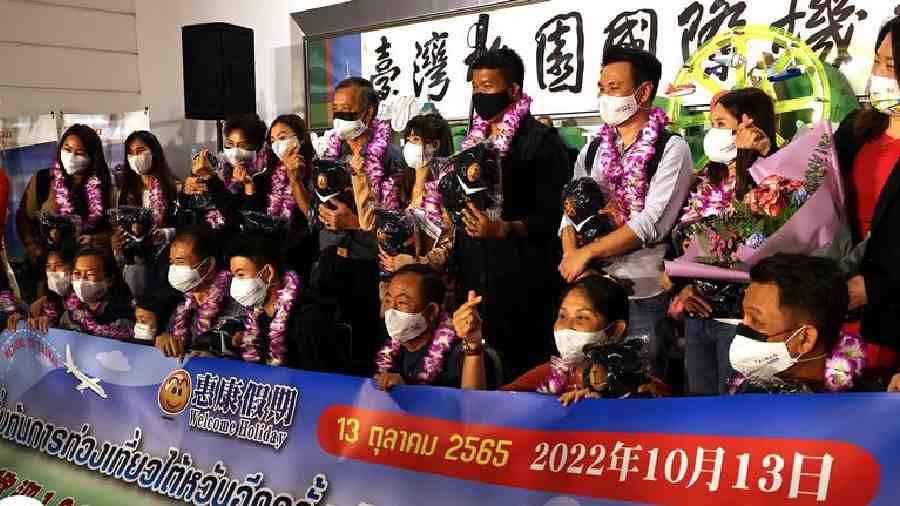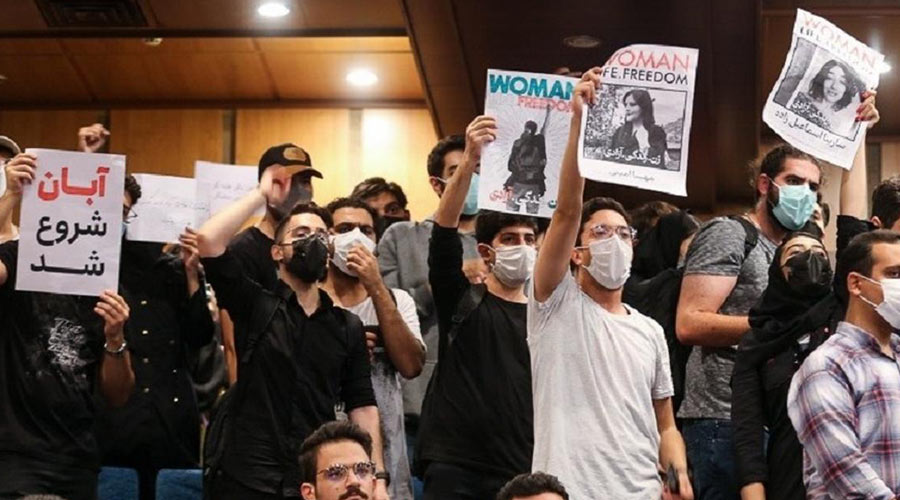Thousands of mourners gathered outside the grave of Jina Mahsa Amini, whose death sparked nationwide protests, as Wednesday marked the end of the traditional mourning period in Islam.
Demonstrators made their way to the grave in the city of Saqez in Kurdistan province on foot, after Iranian security forces blocked the routes leading to the city. Others used their vehicles to navigate alternative routes.
Riot police were heavily deployed to the city, in anticipation of the protests, the Reuters news agency reported.
Forces open fire
Security forces later opened fire on the protesters, according to a rights monitor and a witness on the ground.
"Security forces have shot tear gas and opened fire on people in Zindan square, Saqez city," Hengaw, a Norway-based group tweeted without specifying whether there were any dead or wounded.
The semi-official ISNA news agency characterised the crackdown as clashes between security forces and protesters, adding that the internet had been cut.
"They tried to stop us from entering the cemetery ... but I managed to get in. I have not seen Mahsa's parents yet," one witness near the cemetery told Reuters.
Dozens of mourners chanted "woman, life, freedom" and "death to the dictator" in the Aichi cemetery, the French news agency AFP reported, citing videos shared online.
Meanwhile, businesses in Saqez, and other Kurdish cities like Sanandaj, Divandarreh, Marivan and Kamyaran went on strike on Wednesday, the local Hengaw human rights organization said.
Reuters news agency reported another strike at a Tehran refinery, citing local activists. Refinery officials however denied the strike to the news agency.
On Tuesday, students protested at multiple universities across Iran, defying a crackdown as tensions mounted on the eve of the planned events to mark 40 days since Amini's death.
Authorities closed schools and universities in Kurdistan province on Wednesday, citing a "wave of influenza," state media reported.
Activists said on social media that protests around Tehran's medical school on Wednesday turned violent, when security forces used tear gas to disperse protesters.
How the authorities tried to prevent the protest
Iran’s state news agency published a purported statement by Amini’s family claiming that they would refrain from holding a ceremony to mark the 40th day "considering the circumstances and in order to avoid any unfortunate problem."
However, Iranian activists said the family came under pressure by security services, according to AFP. They added that security services threatened the family with "their son's life" should they hold any ceremonies near their daughter's grave.
Iranian media reported on Wednesday's ceremony of mourning, saying it took place in a "calm atmosphere." ISNA news agency claimed that mourners marched to Amini's grave without any tensions.
'Unprecedented' level of oppression
The mass protests against Iran's authoritarian government were triggered by the death of the 22-year-old Iranian Kurdish woman while in police custody in mid-September. The morality police had arrested her for allegedly not complying with a headscarf mandate.
Since her death, young women and schoolgirls have been at the forefront of the protests.
German Foreign Minister Annalena Baerbock condemned the human rights situation in Iran. She said in a statement on Wednesday that "security forces are acting more brutally against the women and men on the streets who are demanding nothing but their universal human rights."
"The systematic oppression of women and ethnic, religious and sexual minorities in Iran is not new, but it is reaching an unprecedented new level of severity at the moment," Baerbock said.
Baerbock's statement came on the heels of an announcement that Germany is tightening entry restrictions on Iranians beyond already announced EU sanctions.
In a seemingly retaliatory measure, Tehran imposed sanctions on a number of German institutions and politicians, including the Farsi department of DW.
The Iranian Foreign ministry also said in a Wednesday announcement that members of the European Parliament and two German companies were included in the sanctions. It accused the sanctioned entities and personnel of "supporting terrorism."
Those sanctioned would not be allowed entry into Iran. Their assets would also be confiscated.
At least 141 demonstrators have been killed in the protests gripping Iran since Amini's death on September 16, as per local rights groups. Some groups are citing a death toll as high as 250.












